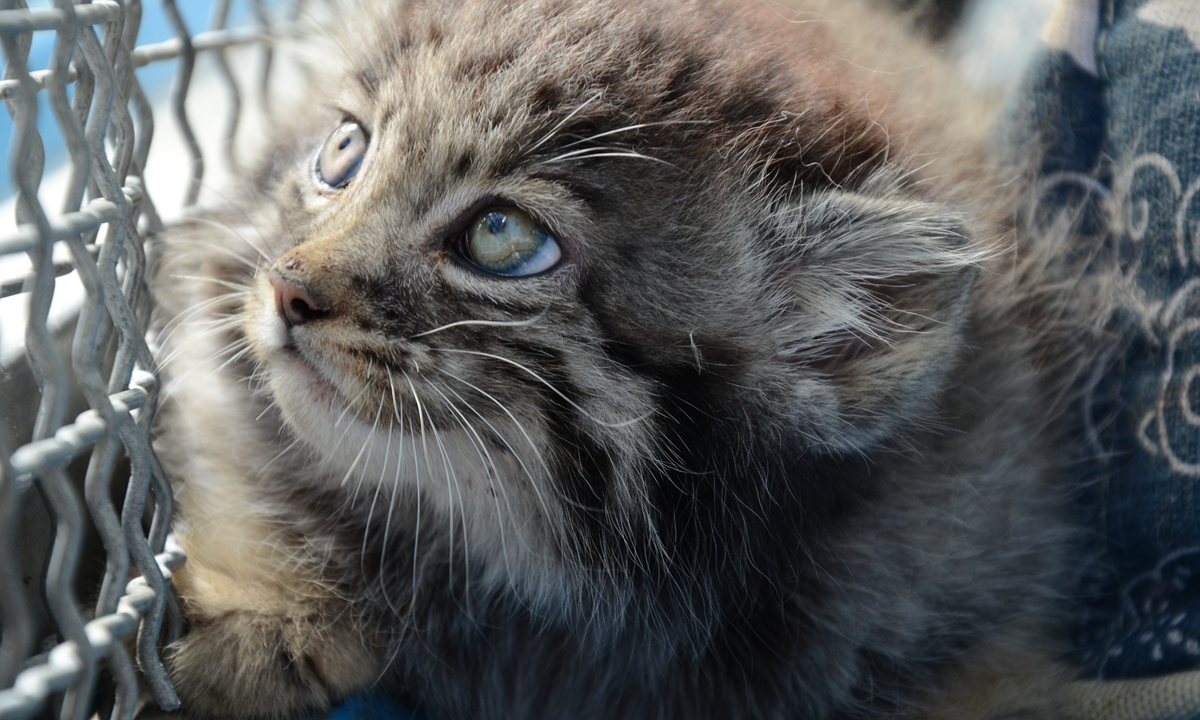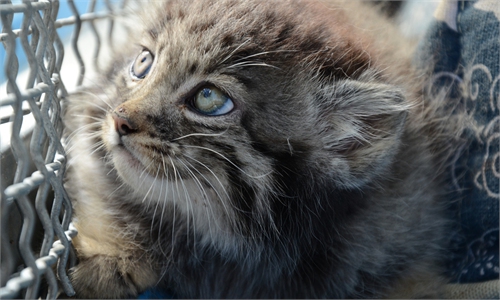
Sun Daniang, Pallads' cat Photo: Courtesy of Xining Zoo
A female Pallas's cat named Sundaniang, a Chinese second-level nationally protected wild animal, died from an illness on Sunday, which was initially diagnosed as pyometra, according to a release issued by the Xining Wildlife Park in Northwest China's Qinghai Province on Monday, where Sundaniang lived.
Until the day before the death of Sundaniang, Saturday's live broadcast footage showed that Sundaniang was still chubby while keepers identified no abnormalities in feeding, defecation, weight and action through its daily feeding observation, according the release.
However, after drilling into a netizen donated "small house" on Saturday night, Sundaniang never came out. Keepers found the animal dead on Sunday morning.
Sundaniang, born in 2021, was nearly 3 years old and was in her second estrus. She started to participate in the scientific research of artificial reproduction in a cage from February, according to the release. Worried that Sundaniang might be unaccustomed to the cage and suffer from loss of appetite and weight, the keepers had been monitoring the diet and bowel movements, weight and size, and observing her behavior and habits every day.
As previously reported, China's only captive male Pallas's cat Sunsimiao together with Sunshangxiang, another female Pallas's cat rescued in 2019, gave birth to a baby Pallas's cat named Sundaniang in 2021, which is the first artificially bred Pallas's cat to survive in China.
In 2022, Sunsimiao reportedly choked to death while eating chicken at the age of seven and a half.
Veterinarians said that pyometra is common in female dogs, cats, rabbits and other pets in heat, and has a complex pathogenesis that is generally believed to be the result of a combination of hormones and bacteria, according to the statement.
Although early detection and treatment are the key to avoiding tragedy, no exudate was previously found from Sundaniang, combined with the preliminary autopsy, Sundaniang may belong to the closed type of uterine pus that is difficult to detect. It is even more difficult to detect in advance for Pallas's cat with long hair, fat body, most of the time hidden and sleeping, and easily stressed.
Global Times

